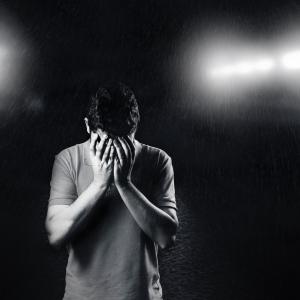Signs of Anxiety Distress in Children
All children experience fear and anxiety. They might get upset when separated from caregivers. They may be fearful of the dark, monsters in the closet, thunder, or of certain animals. Although children’s fears should not be discounted, they are usually outgrown in a period of weeks or months.
But some children, like some adults, become so anxious that it interferes with their activities and personal development.
Signs of Anxiety Distress in Children
Some children will continually express worries about the problems or safety of those close to them or fret about future events. “What if Dad gets in a car accident?” “What if Mom gets sick, or my brother gets lost at camp?” They might obsess about a dance costume not being ready in time for their recital. Some children fear for their own safety as well.
Children may begin doing or checking something repetitively or be compulsive about their toys being lined up a certain way (for example). They may develop rituals such as having to touch certain items in their bedroom before getting under the covers.
Distressed children can be terrified of making a mistake or embarrassing themselves. They might refuse to go to school, never raise their hand in class, express self-doubt, or reveal a noticeable lack of confidence.
Highly anxious children might avoid social situations such as birthday parties, and spend little or no time with friends (or have no friends). They might cower, hide from, or refuse to meet and talk to people outside the family.
Some children exhibit extreme fear of certain situations or things. For example, bugs, dogs, public places, or scissors may cause enough distress to interfere with typical childhood activities.
A child might become panicky or physically ill whenever separated from parents or caregivers.
These children could be terrified something bad will happen to their parents, or themselves, and maybe noticeably clingy. Other children with this issue get angry or have tantrums to prevent their caregivers from leaving. Symptoms can include nightmares, insomnia, or not wanting to go to school.
It is vital that children receive early treatment for abnormal anxiety so it does not hinder their social, emotional, or scholastic development. If you are concerned your child is overly anxious, have them assessed by your family doctor or mental health professional.
Effective treatment may involve individual therapy, family therapy, behavioral interventions, and cooperation with school personnel.
Source: American Academy of Child & Adolescent Psychiatry
Photo: Px Here






